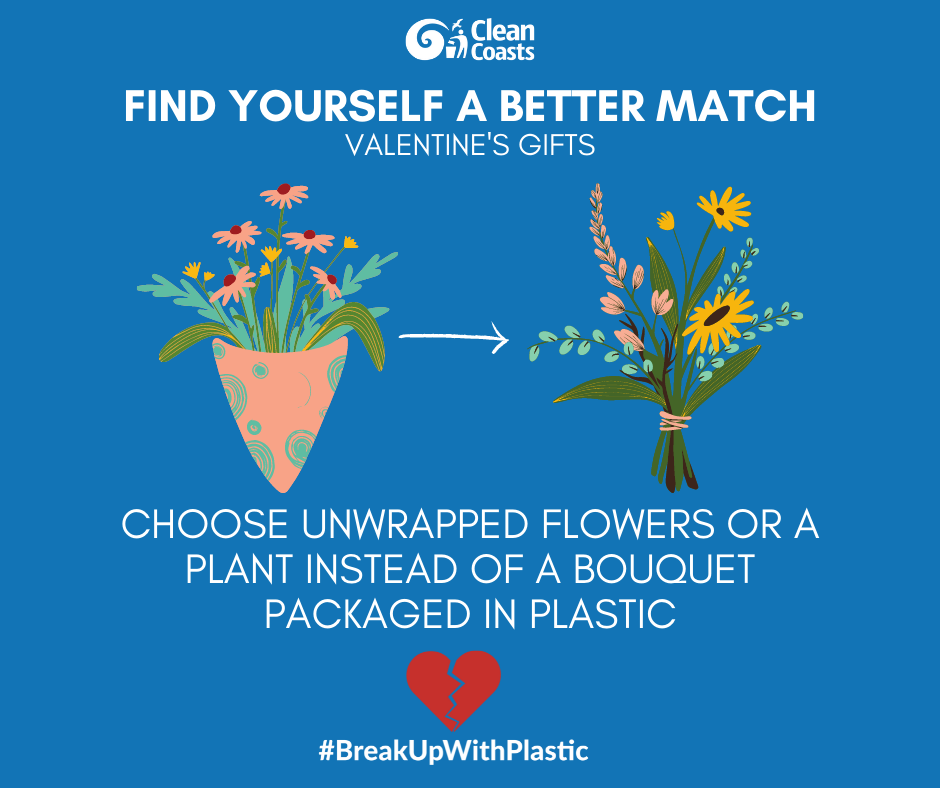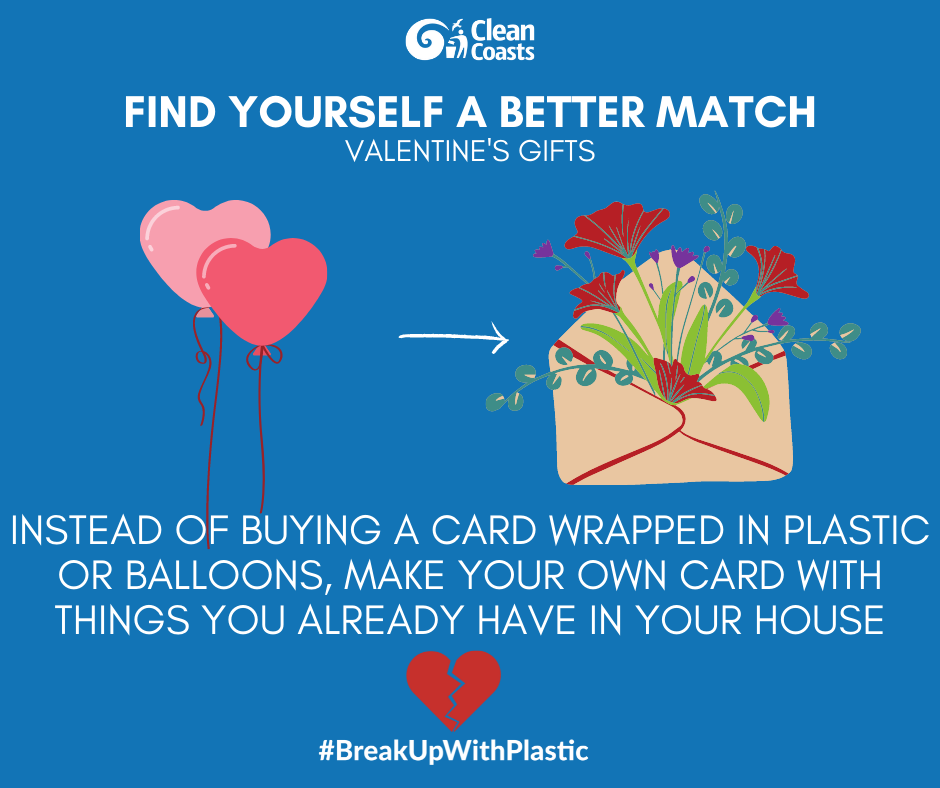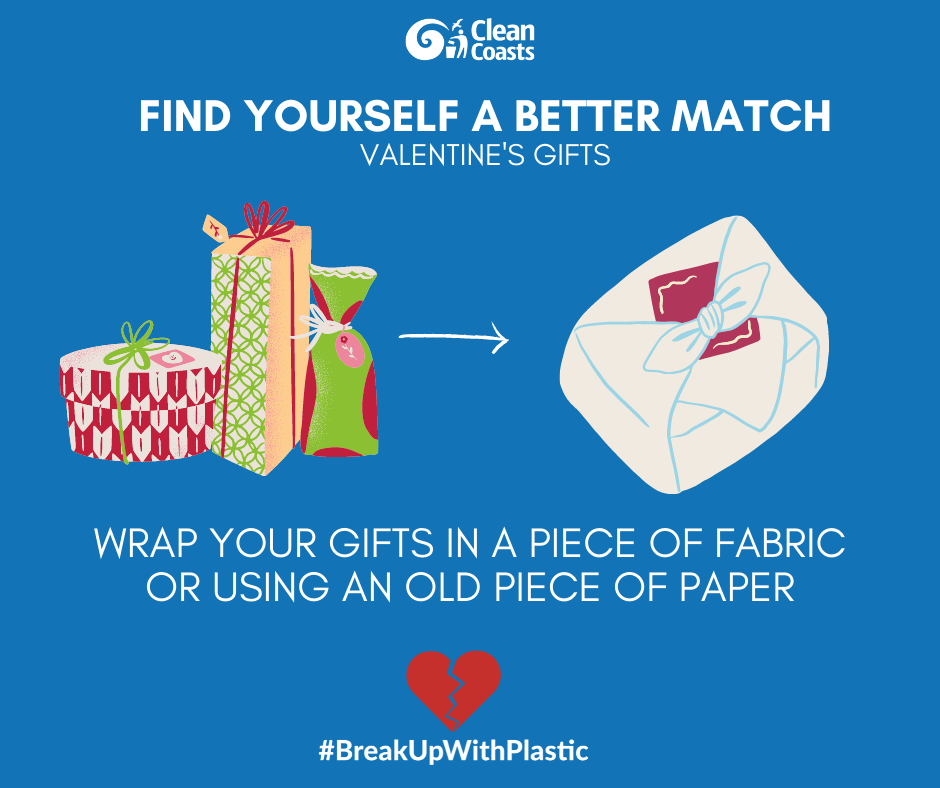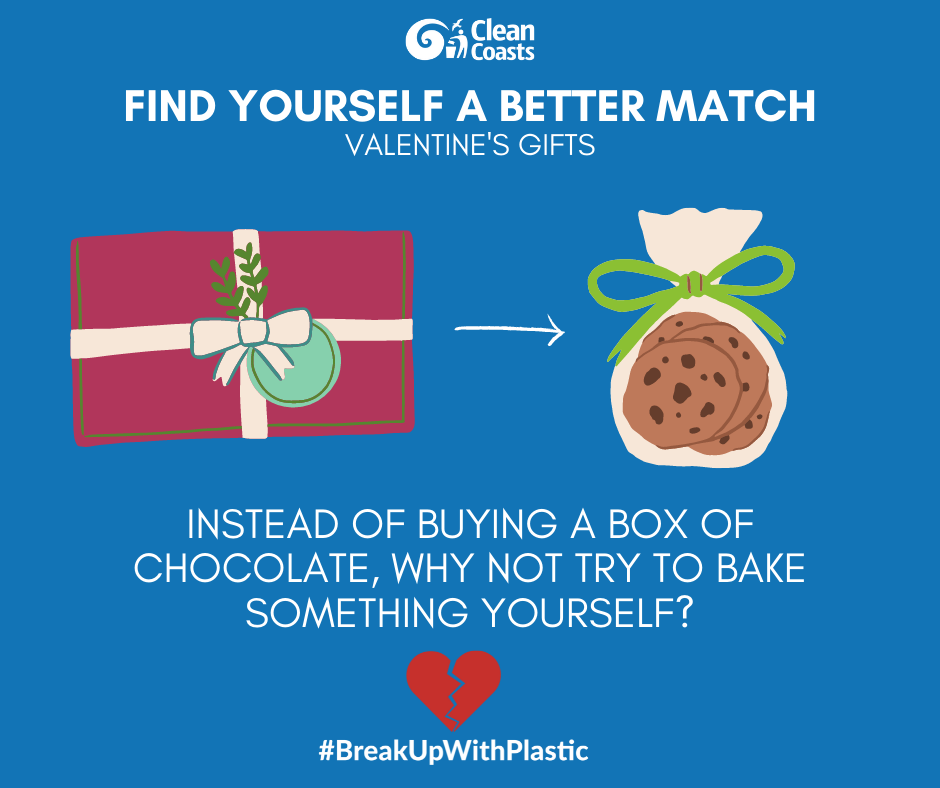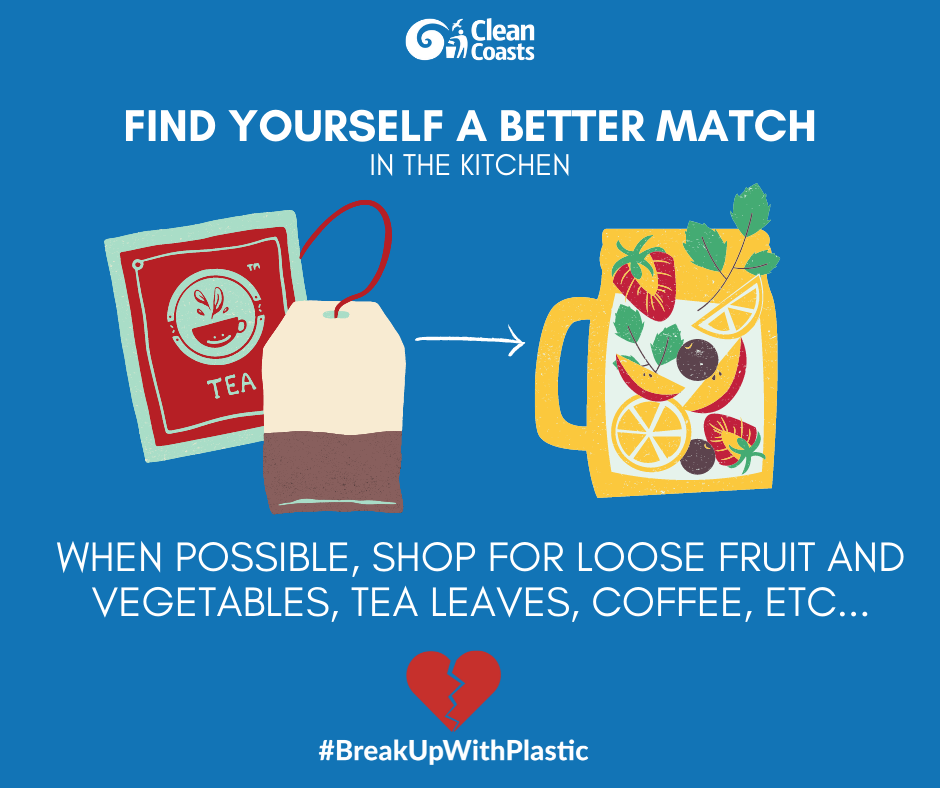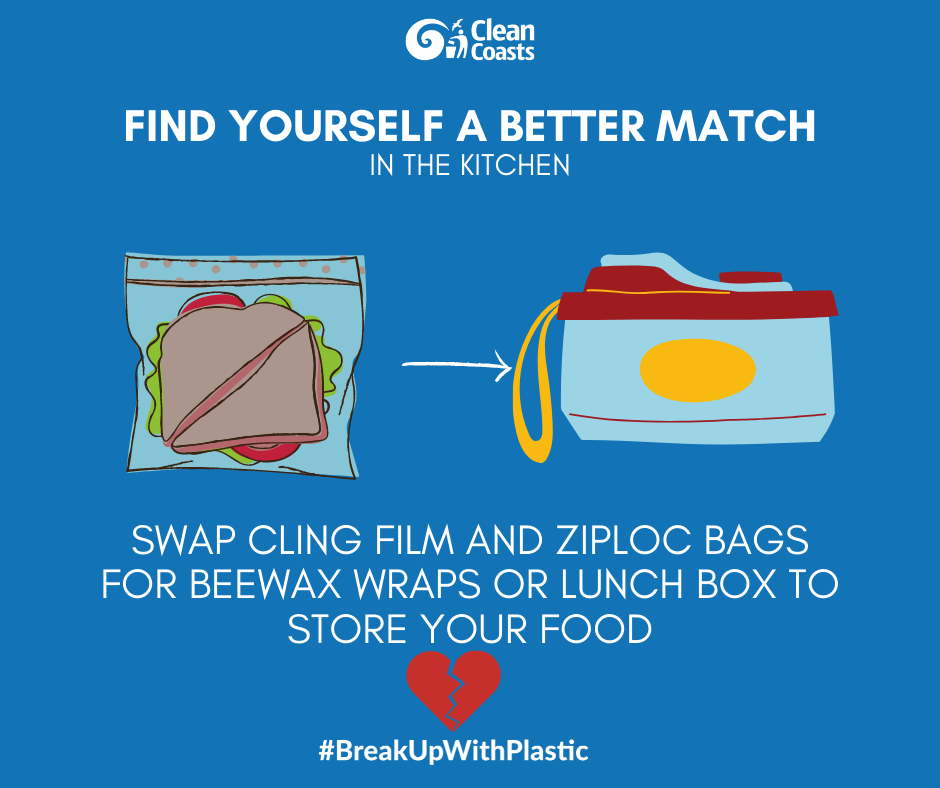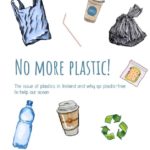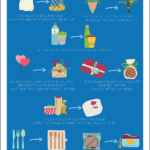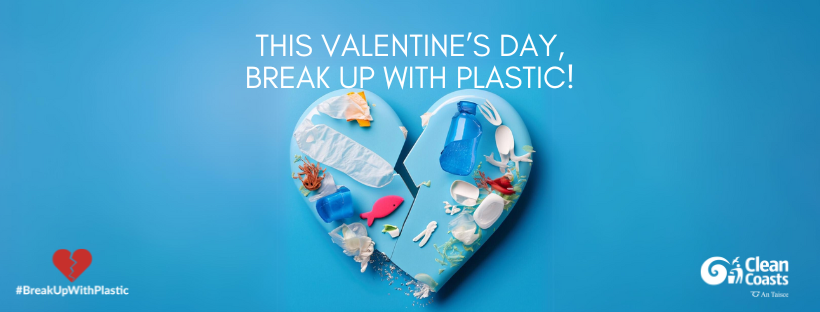
This Valentine’s day show your love for the ocean – #BreakUpWithPlastic
Ditch single-use plastic and commit to a love story that lasts
This February, to celebrate Valentine’s day, we are asking you to Break Up With Plastic and find yourself a better match to show your love for the ocean.
Recent statistics have confirmed that Ireland is the number one plastic waste producer in the European Union and over a third of all produced plastic, such as st
This February, to celebrate Valentine’s day, we are asking you to Break Up With Plastic and find yourself a better match to show your love for the ocean.
Recent statistics have confirmed that Ireland is one of the top plastic waste producers in the European Union and over a third of all produced plastic, such as straws, shopping bags or bottles, is used only once and then discarded.
In recent decades, global plastics production has grown exponentially, because of its versatility and low production cost that have made it one of the most widely used materials of modern times.
While plastics help us, among other, with food preservation, construction insulation, electronics utilisation, and the enhancement of vehicle fuel efficiency, the issue lies in our consumption patterns and excessive use of unnecessary single-use plastic.
With the #BreakUpWithPlastic initiative, we are raising further awareness about the global issue of plastic pollution and ask people to stop opting for single-use plastic. Ireland has some of the most diverse and spectacular coastlines in the world. However, excessive use of plastic is not only damaging its image and polluting Irish oceans and seas, but it is also threatening our marine wildlife and people’s health.
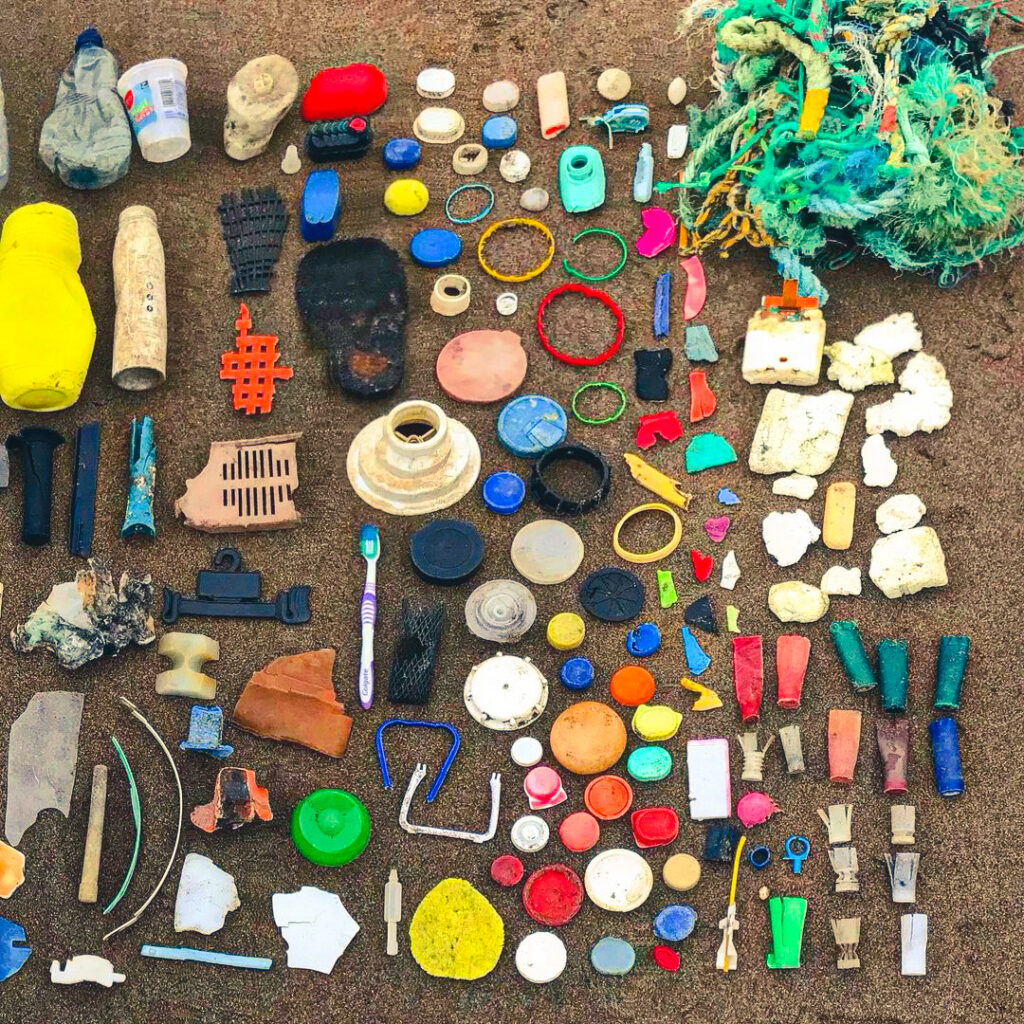
The good news is – there is a solution to this crisis!
This Valentine’s day join Clean Coasts in ditching single-use plastic and switch to reusable and more sustainable products and solutions.
Why should you #BreakUpWithPlastic? Some facts
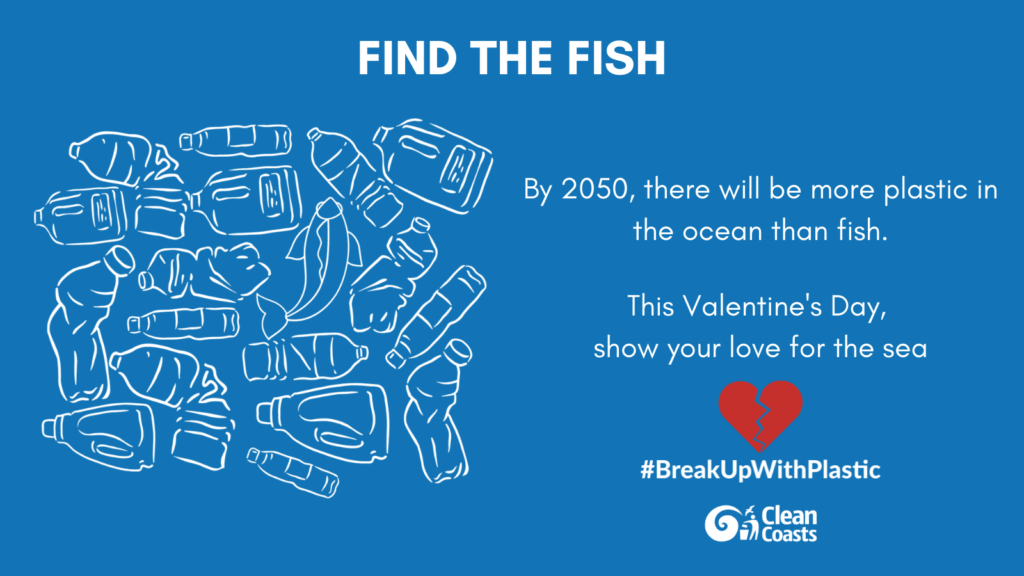
In western Europe, the average annual plastic consumption is around 150kg per person — more than twice the global average of 60kg. (Source)
Only around 9% of the plastics ever produced have been recycled and 12% have been incinerated. The rest is either still in use or has either been disposed of in landfills or released into the environment, including the oceans. (Source) The durability of plastics means that discarded items remain in the environment for generations.
Besides polluting the environment, plastic production contributes to climate change: annual emissions related to plastic production in the EU amount to around 13.4 million tonnes of CO2, or about 20% of the chemicals industry’s emissions in the European Union. (source)
Environmental impacts from discarded plastics include littering, leaching of toxic components, and the contamination of ecosystems and the food chain with microplastics — which can end up eventually in humans with unknown health effects.
Recent statistics have confirmed that Ireland is among the top plastic waste producers in the European.
Here are some facts:
- Each person in Ireland produces 65kg of plastic waste per person each year, compared to the EU average of 33kg, making Ireland the largest producer of plastic waste in Europe
- Ireland also has the fifth lowest recycling rate, with 31% of plastic packaging waste produced
- Approximately 9 million tons of plastic waste enter our ocean each year.
- Plastic generally takes between 450 and 1,000 years to decompose and plastic waste is suffocating our ocean.
- There are an estimated two million disposable coffee cups a day in Ireland going into landfill.
- Around 22 million plastic bottles are purchased in Ireland each week.
Moreover, according to the Ocean Conservancy Coastal Clean-Up report 2023 these were the most common items found on the Irish Coast:
- 4,059 cigarette butts
- 2,587 plastic food wrappers
- 1,708 plastic beverage bottles
- 433 plastic bottle caps
- 561 straws and stirrers
- 692 paper cups and plates
- 214 plastic grocery bags
- 964 plastic takeaway containers
- 511 other plastic bags
A love that keeps on giving – Ireland Deposit Return Scheme

Starting February 1st, 2024, Ireland is rolling the Deposit Return Scheme – where your plastic bottles and cans with the return symbol on, come with a small deposit… giving them a taste of commitment. When you return these recyclable exes to a designated location, you get your deposit back, and our ocean gets some love.
Internationally, Deposit Return Schemes have proven successful in reducing litter. By attaching a small monetary value on these drinks containers, there is more incentive for consumers to return them, rather than creating waste or littering our environment.
Beyond reducing waste and preventing environmental litter, the Deposit Return Scheme reflects a circular economy approach, giving us an opportunity to end our toxic relationship with the ‘take-make-and-dispose’ culture. Instead, it encourages the return of valuable materials, keeping them in the economic loop for an extended period.
We understand that sometimes breaking up with plastic is not easy, and some of our favourite drinks come in a plastic bottle. So, when this happens, the Deposit Return Scheme is the right compromise to make sure to turn our plastic fling into a love that keeps on giving.
Why are we asking people to also #ThinkB4UFlush?
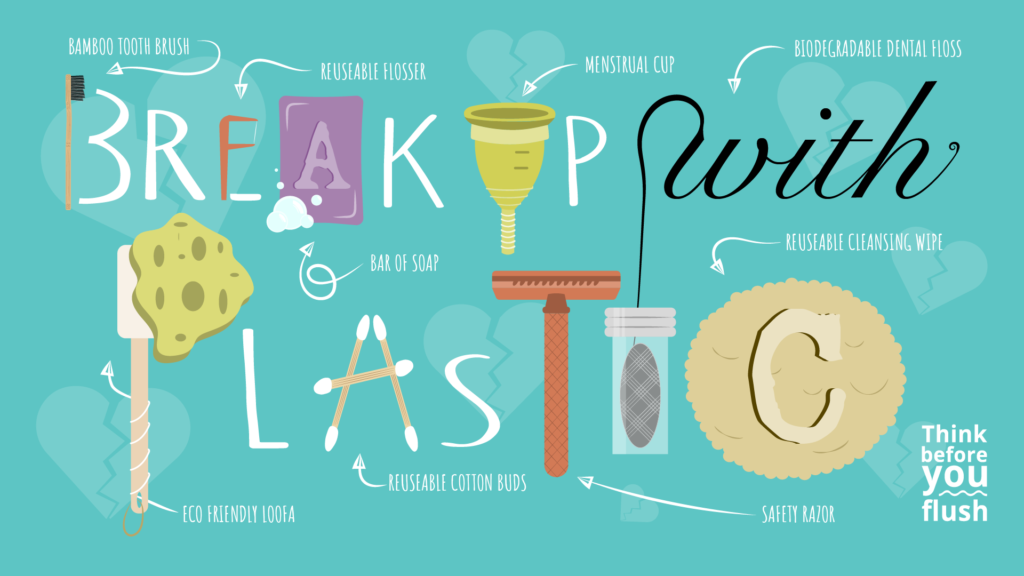
Everyday thousands of wet wipes, cotton buds, sanitary products and other unsuitable items are flushed down toilets in Ireland instead of being put in the bin, causing blockages and plastic pollution in rivers, on beaches and in the ocean.
Think Before You Flush is a public awareness campaign about the problems these items can cause in our marine environment and our wastewater systems if they are flushed. Think Before You Flush is operated by Clean Coasts in partnership with Irish Water.
Here are some facts about wipes:
- The misconception that wipes are flushable is leading to blockages in wastewater pipes and plastic pollution in aquatic ecosystems.
- When flushed, the plastic in wipes becomes fragmented and breaks down into microplastics, that do not naturally degrade leading to persistent pollution issues.
- A research study conducted at NUIG found that:
– 50% of “flushable” wipes tested were made of plastic and were not biodegradable.
– 91% of microplastic fibres found were derived from wet wipes and sanitary towels.
– As well as coming in plastic packaging, 90% of the wipes themselves contain some form of plastic.
- There are an estimated 4.85 trillion microplastic particles in the global ocean. [EPA report]
- Microplastics have been detected in shellfish, fish, drinking water, table salt, honey and sugar, beer, fruit and vegetables and chicken. [EPA report]
- Microplastics can be carried in onshore winds in sea salt aerosols, potentially exposing marine workers or individuals residing in coastal regions. [EPA report]
This Valentine’s Day, #BreakUpWithPlastic and say goodbye to single use wipes and, if you can’t, then make sure you dispose of them properly in the bin. #ThinkB4UFlush
Find yourself a better match
Clean Coasts are asking you to the single-use plastic items in your life and look for a better match. Here are some suggestions.
CHOOSING A VALENTINE’S GIFT
Here are some easy swaps to surprise your significant other on Valentine’s Day with a plastic free gift:
- Choose unwrapped flowers or a plant instead of a bouquet packaged in plastic
- Instead of buying a card wrapped in plastic or balloons, make your own card with things you already have in your house
- Wrap your gifts in a piece of fabric or use an old piece of paper or newspaper
- Instead of buying a box of chocolate, why not try to bake something yourself?
SPENDING TIME OUTDOOR
Let go of your toxic relationship with single-use plastic, there’s a better match for you out there! When you are spending time outdoor don’t forget:
- Carry your stuff in a reusable bag and use that to bring back home any waste or even do a #2minutebeachclean
- Plastic cutlery and plates have officially been banned in the EU, so if you are planning to eat outdoor make sure you have your reusable cutlery with you!
- Don’t buy bottled water, simply fill in your reusable bottles before leaving your home
- No outdoor date is complete without coffee or tea – did you remember your reusable mug?
IN THE KITCHEN
Break Up With Plastic in your kitchen and help the ocean with simple actions from your home:
- When possible, shop for loose fruit and vegetables, tea leaves, coffee, etc..
- Most napkins and tissues come wrapped in plastic and some of them may even contain plastic – swap them for fabric napkins and tea towels
- Replace cling film and ziplock bags with beeswax wraps and lunch boxes to store your food
- Do you know that you can find some soap bars to wash your dishes?
Do you need help to #BreakUpWithPlastic?
Ending a relationship is always hard, and it is even harder when we think we will never find a better alternative.
If you need ideas and tips on how to #BreakUpWithPlastic, check out these resources.
The Riptide Movement Plastic Oceans Web Series
The Riptide Movement’s Plastic Oceans is a three-part web series that we worked on in 2018. The series hopes to add to the urgent and important debate about how to solve the global plastic crisis and the devastating effect it is having on our marine life.
The Clean Coasts programme took the Riptide Movement along the incredible Irish coastline and met with some of Ireland’s leading marine biologists, researchers, campaigners and Clean Coasts volunteers to discover the real impacts of plastic in our oceans and what it means for the future of all life on our planet, including us.

